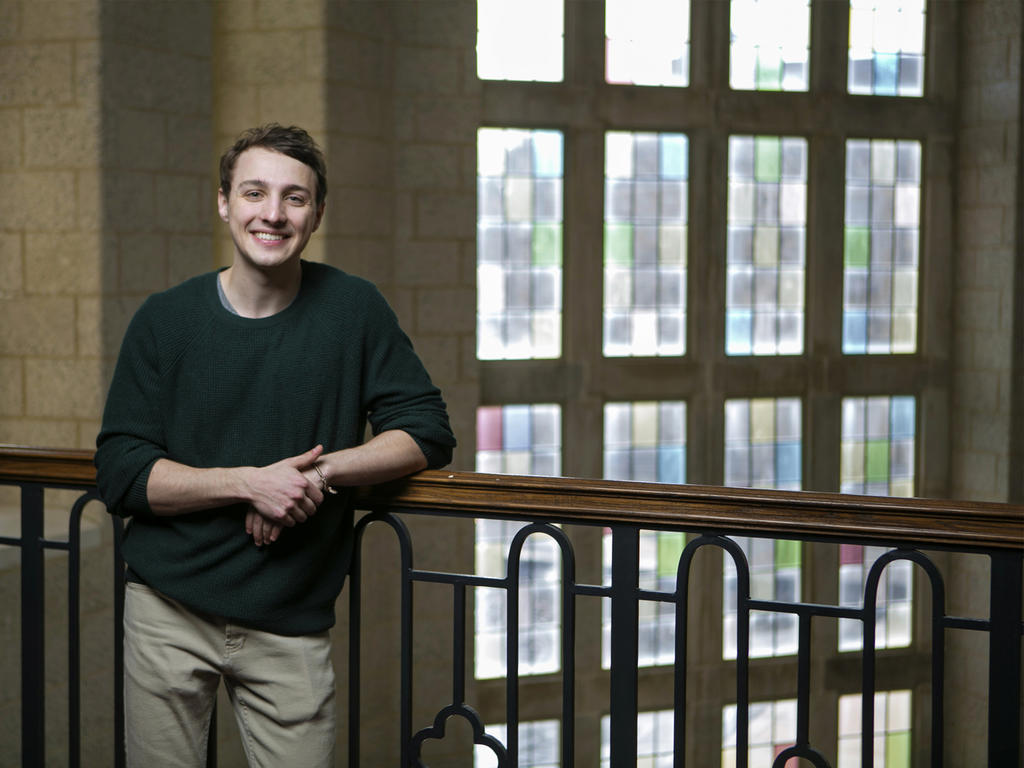Hometown: Morristown, TN
Major: Biochemistry/Molecular Biology
Minor: Religious Studies
Academic interests: Cell Biology/Microbiology
Extracurricular activities: Tri-Beta National Biological Honor Society, Biology Tutor
Tell the story of how you got to Rhodes College.
I actually learned about Rhodes from my sister, Sara Beth Taylor, who graduated last year. Her experiences and successes, especially in the biology and religious studies departments, inspired me to attend. I liked the idea of a college with small class sizes and felt I would thrive in the more close-knit atmosphere here at Rhodes. Memphis, too, provided an exciting change of scenery for me (until my transition to Rhodes, I had lived primarily in small-town, east Tennessee). After a few visits to the beautiful campus, I decided Rhodes was the college for me.
How have you changed since beginning your studies at Rhodes?
If anything, Rhodes has given me perspective. Before arriving here, my exposure to different religions, personal values, and lifestyles had been somewhat limited (I attended Christian schools almost exclusively before coming to Rhodes). Over the past few years, however, I′ve learned more about these subjects than I ever thought I would. Amid the many new outlooks and ideals held by the students and professors here at Rhodes, I′ve managed to develop and solidify my own personal values. My experiences at Rhodes have given me both a better view of the world at large and a better understanding of myself.
Describe the research you’ve helped conduct in the biology department over the past two years.
I′ve had the privilege these last two years of working with Dr. Mary Miller on a research project involving a fairly new chemotherapeutic drug called KP1019. In the lab, we utilized the yeast Saccharomyces cerevisiae as a model system to investigate KP1019′s mechanism of action (how the drug actually works is largely unknown). My part in the project has been primarily the elucidation of genes involved in the cellular response to KP1019 exposure. How do cells cope with the drug? What genes are responsible for repairing the damage caused by KP1019? These and other similar questions have been the focus of our study in the lab. I′ve learned a staggering amount over the course of my work in the biology department, and I am very grateful for the opportunity I′ve been given to participate in this project.
Last fall you received a travel award from the American Society for Cell Biology (ASCB) and gave a poster presentation at ASCB’s annual meeting, which was held in New Orleans in December. What was this experience like?
Presenting at the 2013 ASCB Annual Meeting was one of the most exciting (and nerve-racking) experiences I′ve had in many years. Being surrounded by scientists whose knowledge of the field far exceeds my own was very intimidating. "Make one wrong move, and you′ll be asked about a cellular pathway you never knew existed," I told myself. But despite my worries, the presentations went very well. Being able to tell other scientists about the research data I′ve been collecting for the past two years was very satisfying. I walked away from my presentations feeling more confident in both my understanding of the project and my ability to present the data effectively.
Aside from my own small part in the conference, the ASCB meeting itself was surprisingly fun. There were a number of informative and entertaining presentations to attend, especially those given by Nobel Laureates James Rothman and Randy Schekman. If you are ever given an opportunity to attend an ASCB Annual Meeting (and if you are interested in the biological sciences), don′t miss out!
You’ve also participated in Rhodes’ Undergraduate Research and Creative Activity Symposium (URCAS). Was this helpful to you in your presentation at ASCB?
If anything, URCAS was the perfect practice for my presentations at the ASCB meeting. I took for granted how useful URCAS was in preparing me for the conference, but not anymore. The format used in the symposium here at Rhodes is remarkably similar to the one found at the annual meeting. You can be sure I will be presenting again at URCAS this semester. Come see my presentation if you get the chance!
